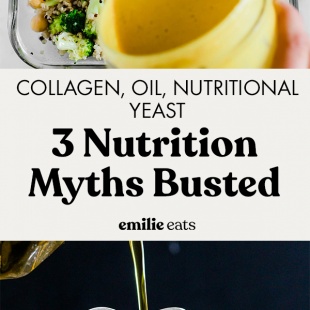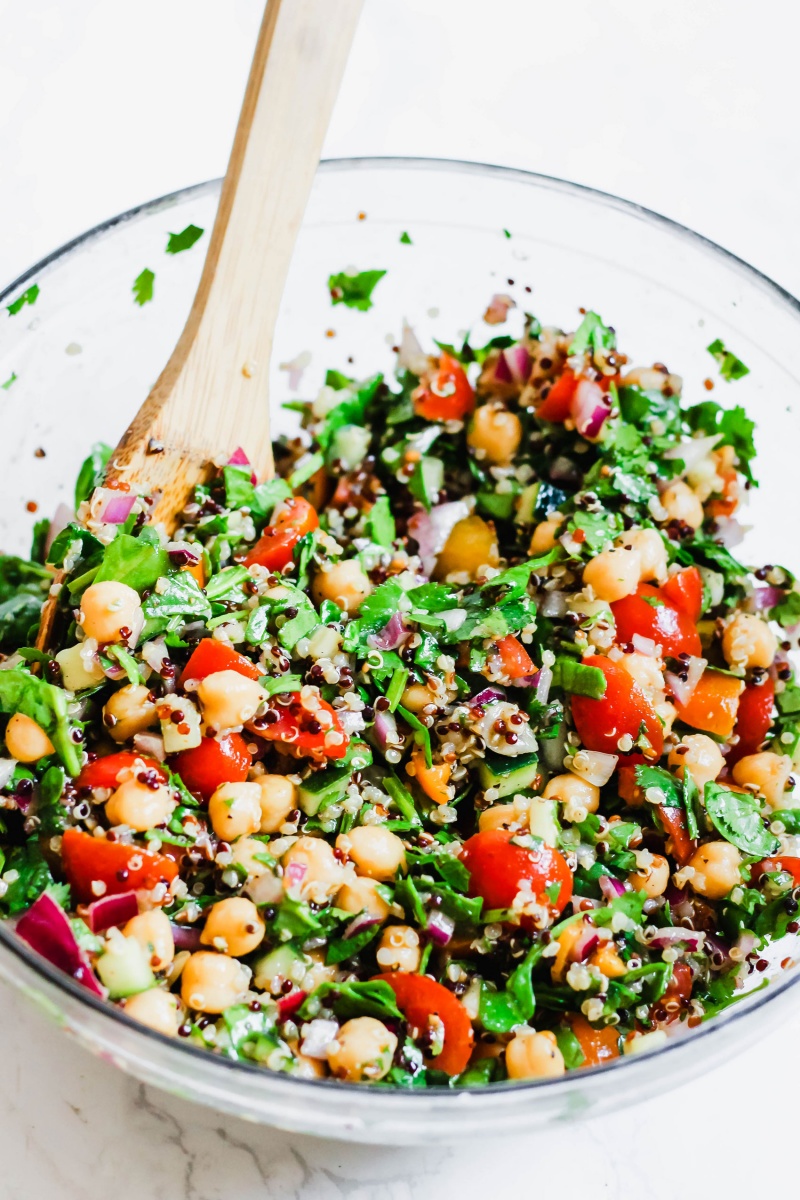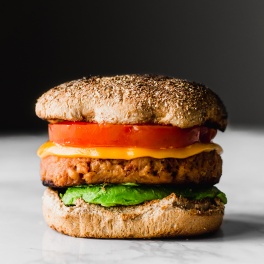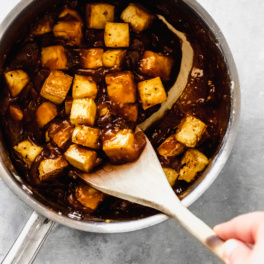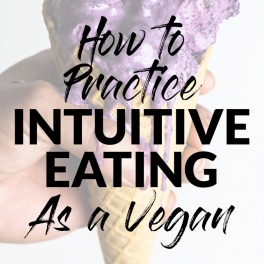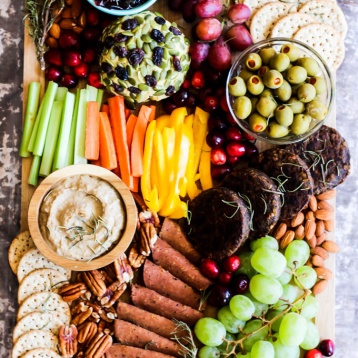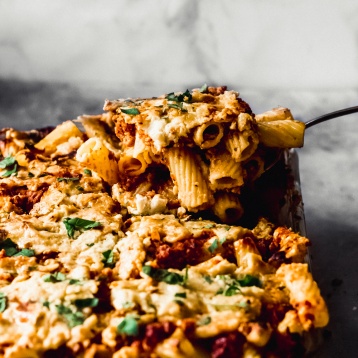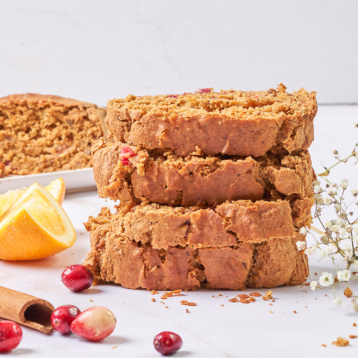While I’m traveling in Italy, I will be sharing guest posts written by a few incredible women! This post was written by Taylor Wolfram, MS, RDN, LDN, an amazing registered dietitian whose practice is grounded in compassion for animals and humans, intuitive eating, and sustainability.
Hi there! I’m delighted to be back on Emilie’s blog serving up some nutrition real-talk. It’s no secret that there is an immense amount of confusion about food, nutrition and health flying around the internet. And, sometimes it seems just about everyone is calling themselves an “expert” and dishing out advice on what and how to eat. Well, today I’m here to dive into some of the latest food trends and nutrition topics in the wellness space.
MYTH: Collagen supplements are a must for healthy skin.
People love their miracle foods and collagen has been having a serious moment among regular folks and celebrities alike. Real quick: collagen is a connective tissue found in animals that is made of protein. When people eat collagen, they’re eating ground up, dried animal tissue. The thought is that consuming collagen from other animals will boost the collagen in our bodies and help us feel and look better.
When we eat collagen, our body breaks it down like it does anything else we consume. The body may choose to use that broken down protein in a variety of ways. The body will prioritize what it uses the peptides for depending on its needs at the time. There is no way to tell your body to use it to make collagen.
Some research has found taking collagen supplements has a positive impact on joint pain in the short term but there is not enough evidence to make any long-term claims. And some people report their skin to be “clearer” and have less “visible signs of aging” after using a collagen supplement. But collagen is neither a quick fix nor a magic pill for reversing the natural aging process.
Want to actually support your body’s collagen production? Vitamin C is used to make collagen in the body so be sure to eat plenty of vitamin C-rich foods including citrus, strawberries, kiwifruit, broccoli and bell peppers. Also, remember to drink plenty of water, stay out of the sun and use a reef-friendly, cruelty-free sunscreen when you do go in the sun to protect your skin. And, of course, accept that aging is a natural part of life.
FACT: Right now the research to support collagen supplements for any reason is limited so instead you can save your money for protein-rich foods such as beans, lentils and tofu.
MYTH: Nutritional yeast causes inflammation and disease.
If you’re not familiar with “nooch,” it’s an inactive yeast that is yellow and flaky and loaded with micronutrients, thus why it is called nutritional yeast. Two tablespoons of nutritional yeast contains 4 grams of protein, 2 grams of fiber, 0 grams of fat, 3 grams of carbohydrate and is an excellent source of thiamin, riboflavin, niacin and vitamin B6. It lends a cheesy flavor and nooch fans love using it on all kinds of food from popcorn and mashed potatoes to mac n’ “cheese” and homemade “Parmesan.” Many kinds of nutritional yeast are fortified with vitamin B12 and can be an important source of this nutrient for vegans.
To be frank, I was flabbergasted by this claim against nutritional yeast and then I saw it originated with Medical Medium author Anthony William (the guy who says that a spirit is giving him health information to pass on to fellow humans), which made more sense (yes, this is the celery juice guy). The argument is that nutritional yeast is actually just monosodium glutamate, or MSG, which has gotten a seriously bad rap in recent years. MSG is the sodium salt of the amino acid glutamic acid and occurs naturally in many foods, such as tomatoes, and also is added to foods as a flavor enhancer.
So what does the evidence say about MSG? The U.S. Food and Drug Administration considers the addition of MSG to foods as “generally recognized as safe.” In 2013 the Academy of Nutrition and Dietetics completed a systematic review investigating the adverse effects associated with consuming MSG. The results were inconsistent.
Systematic reviews are a great way to evaluate research because they pull in many studies and use a specific process for analyzing them, taking into consideration the study design, sample size, appropriateness of statistical analyses used, potential conflicts of interest and more. When there are hundreds or thousands of studies on a topic, it’s impossible for the average person (or even health professional) to read them. And when we cherry pick studies, we run the risk of getting a very narrow and biased perspective. This is why any person on the internet can point to research to “prove” their point — they often are citing faulty studies that do not necessarily represent the body of literature.
For instance, this article inciting fear of nutritional yeast misrepresents a small animal study on MSG. Note that using animal studies to draw conclusions about human health is not good science. One must also consider whether the MSG was naturally occurring or added, and if the amount studied is an amount that someone would typically consume. Not to mention statistical and clinical significance.
Back to the evidence: A 2016 systematic review on the impact of MSG on headaches found inconsistent results and that high-quality studies on the topic were lacking. And a small 2018 study found that eating a diet high in added MSG was associated with decreased perception of umami taste. Not quite a health concern but interesting to note nonetheless.
FACT: There is no evidence to suggest that consuming a moderate amount of nutritional yeast increases markers of inflammation in humans or increases risk for disease.
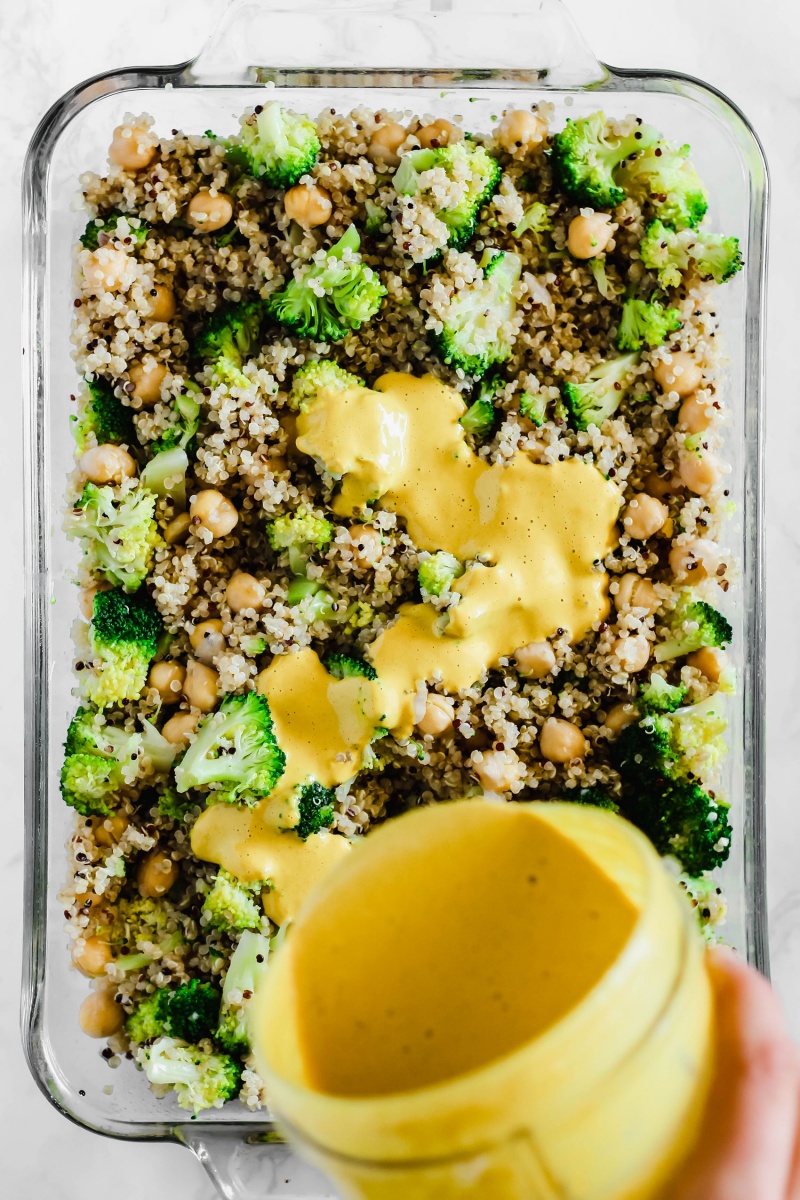
MYTH: Eating any amount of oil is detrimental to health.
If you’ve been in the plant-based space for awhile, this is nothing new to you. Doctors claiming to reverse disease with restrictive diets have been hating on oil for decades. The claim is that dietary fat, from both animal and plant sources, “impairs endothelial function” (the inner lining of blood vessels) and causes arteries to become stiff and encourages the build-up of plaque in the arteries. In fact, research shows that olive oil in particular is anti-inflammatory and its polyphenols is are protective against heart disease.
The funny thing about articles bashing plant oils such as olive oil is they work against themselves. For instance, this article cited the PREDIMED study which found that people consuming a Mediterranean diet plus olive oil compared to those eating a Mediterranean diet plus nuts did not experience a difference in blood pressure, cholesterol levels or heart attacks. Which means that getting plant fat from a “whole food” such as nuts did not confer a benefit over getting plant fat from a “processed food” such as olive oil.
Also, consider the Blue Zones, the five areas of the world where people live significantly longer, healthier lives. Sardinia, Italy and Ikaria, Greece are two of the five Blue Zones and people who live in these areas eat plenty of olive oil. Of course they also follow other healthy lifestyle behaviors.
I’m not saying to douse everything you eat in oil, but there is an overwhelming amount of evidence supporting the fact that diets that are rich in plant foods and moderate in fat (coming from mostly plant sources including oils) tend to decrease risk for many chronic diseases. Using a little oil in salad dressings and while cooking foods helps your body absorb the fat-soluble vitamins A, D, E and K, helps you feel satiated, lends to pleasant mouth-feel of foods, helps food cook and brings out tasty flavors.
FACT: A plant-based diet that includes some oil is a healthful, accessible and sustainable way to eat.
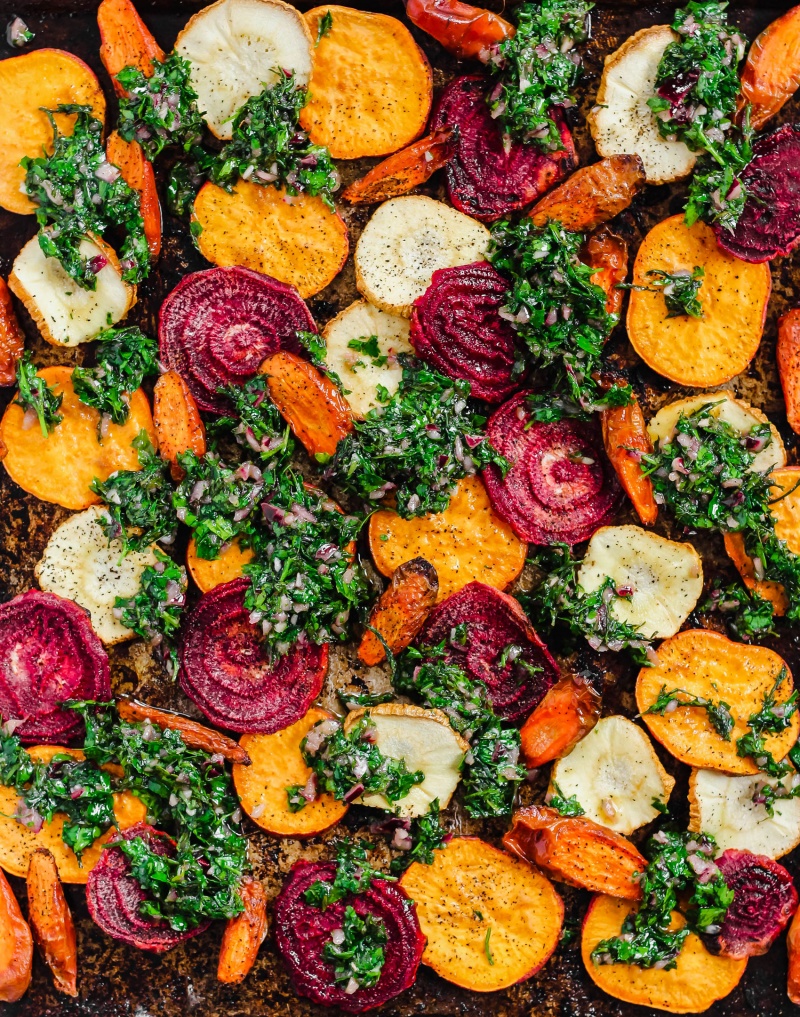
So, what’s the takeaway here? Don’t buy into fear-mongering or magic bullets. The fundamentals of good nutrition haven’t changed: Nourish your body with a variety of vegetables, fruits, whole grains, legumes, nuts and seeds. Also eat foods that nourish your soul. Listen to your body — eat when you’re hungry and stop when you’re satisfied. Take pleasure in fun foods and don’t stress too much. If you are looking for credible nutrition information and personalized dietary advice, work with a registered dietitian nutritionist.

Taylor Wolfram, MS, RDN, LDN, is a health writer, editor and private practice dietitian based in Chicago, Illinois. With a background in research, Taylor has the skills to translate the latest nutrition science into understandable messages for clients and the public. She has expertise in vegan nutrition, uses a Health At Every Size approach and believes all humans and animals have a right to body autonomy and respect.
Follow her on TaylorWolfram.com, Instagram, Twitter and Facebook.
Sources:
Does monosodium glutamate really cause headache? : a systematic review of human studies
Evidence Analysis Library: Umami in Foods
FDA: Questions and Answers on Monosodium glutamate (MSG)
Food & Nutrition Magazine: Why are Collagen Supplements Popular?
Jack Norris: Of Oil and Ethics
Olive Oil-related Anti-inflammatory Effects on Atherosclerosis: Potential Clinical Implications
The Vegan RD: Keeping Vegan Diets Healthy and Fabulous
The Vegan RD: Olive Oil, Health and Advocacy
Today’s Dietitian: Dietary Collagen — Should Consumers Believe the Hype?
USDA Food Composition Database: Nutritional Yeast
VeganHealth.org: Healthful versus Unhealthful Plant-Based Diets

